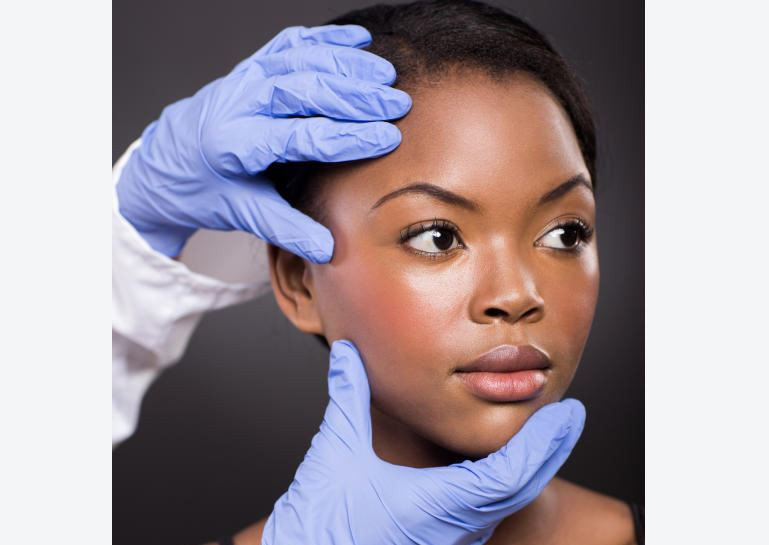
Sniff your mascara...
Eye make-up that’s past its best could cause eye infections or irritation.
“The warm, dark environment of a mascara tube is a haven for bacteria to thrive,” says optometrist Francesca Marchetti. “Try sniffing your mascara and if it smells at all bad, ditch it.
“Bin a new mascara after three months. And always remove your eye make-up at night or you may develop blepharitis, an eyelid irritation.”
Use eye drops
Dry, irritated eyes can be caused by everything from computer use to cigarette smoke or windy weather. Plus certain drugs such as the Pill, antihistamines, beta-blockers and even the preservatives in some eye drops can contribute to dry eyes.
“Keeping your eyes well lubricated and hydrated is key,” says Francesca
Blink more...
Blinking cleans the surface of your eye, helping to prevent infection. It also flushes fresh tears and nutrients over its surface to keep it healthy. When we’re concentrating – especially on computers or smartphone screens – we don’t blink enough.
“Normally, we’ll blink about 24 times a minute but when we’re staring at a computer screen, this drops to about nine times a minute,” says Francesca.
“Use the 20:20:20 rule – every 20 minutes, look 20ft away for at least 20 seconds – and blink 20 times.”
...but do it by the book
Who knew there was a “correct” way to blink? Your eyes have to be completely closed when you blink to effectively clean and refresh them.
“Check if you’re blinking correctly by resting a finger under your eye just above the cheekbone and pointing to your nose – when you blink you should feel your upper lashes on your finger,” says Optrex expert Dr Daniel Sister.
Stop smoking
“Smokers are four times as likely as non-smokers to develop macular degeneration (a leading cause of vision loss) and twice as likely to develop cataracts,” says Francesca.
“It’s best to quit but if you find it too difficult, try an eye vitamin and mineral supplement which contain antioxidants to help combat damaging free radicals in cigarette chemicals.”
Stay shady
“Sun damage has been linked to cataracts and may be linked to age-related macular degeneration, a major cause of blindness in the UK,” says Dr Susan Blakeney.
“It’s not just bright sunshine that poses a risk. If you are outside a lot, consider wearing sunglasses to protect your eyes from UV rays invisible to the human eye. Sunglasses don’t need to be expensive,
Beat the bugs
Love spa life? Then beware bugs. “If you use contact lenses, remove them before swimming, showering or using a hot tub. Wearing them increases the risk of contracting an infection from acanthamoeba – parasites that live in water,” says Dr Blakeney.
“Acanthamoeba keratitis, where the bug infects your cornea, is painful and can cause permanent visual loss.”
Tilt your computer screen
Our eyes are more comfortable when we look down to read, rather than when we read at or above eye level, says Dr Blakeney.
“So aim to have the top of your monitor level with, or slightly below, your horizontal eye level, and tilt the top of the monitor away from you at a 10- to 20-degree angle.”
Do eye exercises
A common symptom of age-related macular degeneration is noticing that straight lines start to appear wavy – or that there are patches missing from your vision. “When monitoring patients diagnosed with AMD, we typically provide them with a small grid to look at with each eye individually to detect early or sudden changes in vision vertically and horizontally,” says Saj Khan, consultant ophthalmologist at the London Eye Hospital.
“For patients who are not in formal regular monitoring, we recommend looking at the same point on a tiled wall or at both the horizontal and vertical parts of a door frame in order to achieve the same result.”
Take a 20-minute walk
Studies have shown exercise can reduce intraocular pressure (inside the eye which can cause glaucoma).
“The benefit is seen with regular gentle to moderate exercise – try brisk walking for at least 20 minutes four- five times per week,” says Mr Khan.
Get outside
Studies indicate people who spend more time outdoors are far less likely to develop short-sightedness than those who spend most of their time indoors.
It’s thought it may be to do with the fact that dopamine – a chemical brain messenger that’s important for healthy eye growth – is released in the retina by daylight.
So make sure you get out and about.
Eat ‘traffic-light’ food
High levels of the antioxidants lutein and zeaxanthin in eye tissue are associated with better vision.
“Find them in green foods like kale, spinach and avocado and yellow foods such as corn and egg yolk plus, to a lesser extent, in red foods like tomatoes and red grapefruits. “Think of it as eating ‘traffic light’ types of foods.”
...and seafood
“The omega-3 fatty acid, DHA, is important for good eye health and can be found in the retina,” says Rob.
“This fat can be found in oily fish such as fresh salmon and tuna
 The Standard Group Plc is a multi-media organization with investments in media platforms spanning newspaper print
operations, television, radio broadcasting, digital and online services. The Standard Group is recognized as a
leading multi-media house in Kenya with a key influence in matters of national and international interest.
The Standard Group Plc is a multi-media organization with investments in media platforms spanning newspaper print
operations, television, radio broadcasting, digital and online services. The Standard Group is recognized as a
leading multi-media house in Kenya with a key influence in matters of national and international interest.










